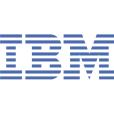 IBM (NYSE: IBM) today announced plans to create a Product Development Integration Framework to better link the design and development of products with core business processes, elevating product lifecycle management and development from an engineering-centric function to a strategic business process that improves executive decision-making abilities across the enterprise.
IBM (NYSE: IBM) today announced plans to create a Product Development Integration Framework to better link the design and development of products with core business processes, elevating product lifecycle management and development from an engineering-centric function to a strategic business process that improves executive decision-making abilities across the enterprise.IBM is leveraging its industry lead in service oriented architecture and its 25-year experience delivering PLM Solutions to tackle the tough customer problems of integration.
IBM has secured support for its new framework from eight leading PLM and integration solution providers who have signed on to build solutions around this new, open standards-based platform that emphasizes the interoperability of applications from vendors across the product development domain. The new, open framework, combined with business partner PLM applications, will allow clients to easily extend design and business collaboration throughout their value chain.
"The area of product development, with its broad cross-enterprise reach and critical impact on the success and profitability of the enterprise, requires a degree of flexibility that can only be achieved through a service oriented approach," said Robert LeBlanc, general manager, IBM WebSphere Software. "IBM is committed to helping our clients advance their product development processes in the most effective manner possible, and the PDIF will play a critical role in achieving that goal."
The eight application providers supporting the new IBM framework are Agile Software Corp, Centric Software Inc., Engineous Software Inc., Geometric Software Solutions Co. Ltd., MSC Software Corporation, PROSTEP AG, PTC and UGS Corp. Other vendors are being encouraged to evaluate the technical criteria required to enable their applications to support the framework.
On October 3, IBM introduced its largest-ever lineup of new software and services for building and expanding a service oriented architecture, including a new SOA technology platform enabled by IBM's WebSphere Business Services Fabric. The IBM product development framework is an extension of this platform, adding Business Partner applications, business services and other SOA assets dedicated to product development and related business processes. It takes advantage of SOA to help integrate multiple enterprise systems and applications, enabling flexible business processes built on reusable services without relying on rigid, hard-coded connections.
According to IBM market research, companies will spend some $80 billion by 2008 on solutions to align their business strategies with product development. For companies that rely on successful products as a key element of their success, the PDIF puts product innovation at the heart of the entire business, linking product development into enterprise business processes -- from customer service management to enterprise resource planning and supply chain management.
Because it is based on a foundation of SOA, the PDIF makes enterprise information readily available to executives, improving their view of the business. It helps companies model and manage flexible, reusable product development processes that can be changed quickly and easily. It also provides an IT foundation on which all enterprise applications can operate synchronously, enabling the sharing and reuse of processes and information while displaying results in a consistent manner across the enterprise.
"We are pleased that IBM is launching its integration framework with a PLM SOA approach that will support our own best practices and principles," says Yves Boccon-Gibod, VP Thales Engineering & Process Management. "Thales' core business is to deliver complex systems for the aerospace & defense industries. Over the past 12 years, we have begun to define, develop and deploy for end-users 'service-oriented solutions' to support the various engineering disciplines and the management of their parts and models. We trust and can already demonstrate the value of SOA-based solutions in the PLM domain."
The aforementioned leading infrastructure ISVs and traditional PLM application software vendors are aligning with the framework and enabling their software to take advantage of the capabilities delivered by all of IBM's software brands -- WebSphere, Information Management, Lotus, Rational, and Tivoli -- to address client issues within a broad range of industries. IBM will work with these vendors to develop PLM standards recommendations that solve customer integration and exchange problems to reduce the total cost of ownership and enable return on investment.
In addition, other PLM application and integration solution providers are working to integrate their offerings with a software authoring and systems development solution from IBM Rational to help improve governance of the product lifecycle across all engineering disciplines and bring higher-quality products to market as companies increasingly rely on software in their products. To support this, IBM Rational on December 5, 2006, announced the Rational Software Delivery Platform 7.0 to help accelerate and improve the design, development, implementation and management of the delivery of software and systems architectures.
For more information on IBM PLM solutions, visit www.ibm.com/solutions/plm




No comments:
Post a Comment